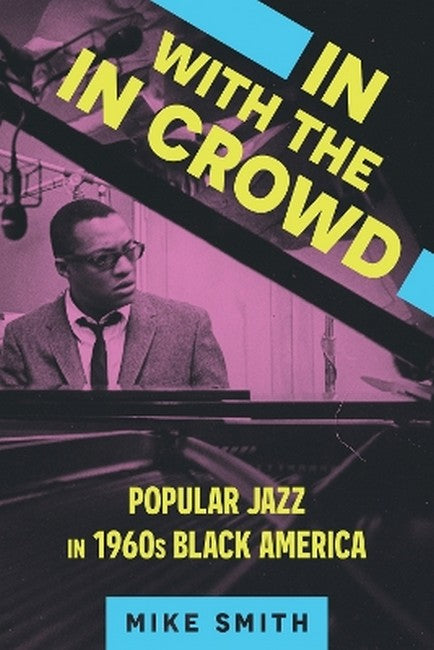Mike Smith has been a performer, writer, arranger, and educator for more than forty years. He is coordinator of Jazz Studies at The Ohio State University, where he conducts the jazz ensemble, jazz fusion combo, and teaches jazz styles and jazz pedagogy classes.
Request Academic Copy
Please copy the ISBN for submitting review copy form
Description
Acknowledgments Introduction: Where's Nancy? Chapter One: Who's Afraid of Eddie Harris?-Why the Story of Jazz in the Sixties Is Almost Always Misrepresented Chapter Two: Serenade to a Soul Sister-Nancy Wilson and the Popular Jazz Divas Chapter Three: "The Sidewinder"-The Groove That Launched a Thousand Clones Chapter Four: 33s and 45s-The Record Labels That Put the Sounds in the Grooves Chapter Five: The "In" Crowd Goes to the Club-Bars, Taverns, Nightclubs, and the Live Scene Chapter Six: "When You Go, Let 'Em Know That Daddy-O Told You So"-Black Radio and the DJs That Spread the Sounds Chapter Seven: Pulling out All the Stops-Organ Jazz, the Quintessential Sound of Sixties Jazz Chapter Eight: Mean Greens, Fried Neckbones, and Home Cookin' at the Greasy Spoon-Black Cultural Identity and Popular Jazz Chapter Nine: "Why Am I Treated So Bad?" . . . "Compared To What?"-Popular Jazz and Civil Rights Chapter Ten: How Did We Forget, Why Did We Forget?-The Revising of the Sixties Jazz Narrative Appendix A: 1960s Popular Jazz Listening Guide Notes Bibliography Index
Smith will open a lot of eyes to an entire subgenre of 'soul jazz' that just got lost in the shuffle, especially when Motown was king. But no matter how much jazz a listener has lived with over a lifetime long or short, every reader can learn a lot from In with the In Crowd." - Richard J. Salvucci, All About Jazz "With energy and zeal, In with the In Crowd goes a long way toward correcting and completing the written history of jazz from the mid-twentieth century." - Keith Hatschek, author of The Real Ambassadors: Dave and Iola Brubeck and Louis Armstrong Challenge Segregation "Mike Smith's In with the In Crowd addresses the fascinating-and puzzling-near-absence of popular jazz artists from conventional histories of jazz. Underlying the entire work is a deep familiarity with and profound love of these artists and their music, and a desire to correct and expand the familiar historical narrative." - Jonathan Bellman, area head of academic studies in music at University of Northern Colorado

